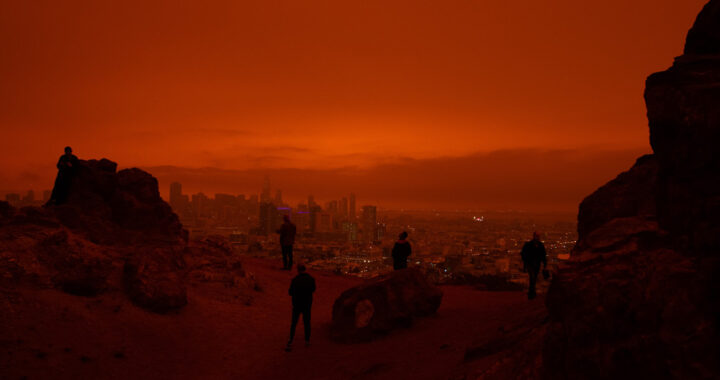As I write this, I’ve just gotten back from seeing A Quiet Place Part II. I was initially intending to write a review of the Quiet Place films, but now I don’t think I personally need to be a film critic and pick apart all the themes and aspects of the story. Both of those movies are brilliant and terrifying, but they speak for themselves. If you like horror movies and stories about strong family relationships, go watch them. But this article isn’t excusively about those films.
I have a love-hate relationship with post-apocalyptic fiction, in which some worldwide disaster (nuclear war, an alien invasion, environmental catastrophe, etc.) has recently caused a collapse of the world’s supply chains, communications, government, and social order. Unfortunately, we’ve had a taste of social and economic disruption for the past year and a half, spending time huddled at home, afraid of each other, terrified of breathing unfiltered air.
On the one hand, a piece of me hates post-apocalyptic stories. Partway through A Quiet Place Part II, I started feeling emotionally drained. Since I have a melancholic temperament, I’m easily weighted down by the despair and fear induced by the genre. There are layers of grief in these stories, too—grief for friends and family killed by the catastrophe and its aftermath, but also grief for the loss of all that we’ve built as human beings. Our nations and governments, our scientific and technological advances, our artwork and architecture and literature, much of our culture—how could all of that suddenly be gone?
People in these stories go back to living in tribes like our hunter-gatherer ancestors, trying to survive despite the dangers of from environment and from their fellow human beings. Without government and laws, society and morality usually breaks down. “The people that are left, what they’ve become … They aren’t the kind of people worth saving,” says Emmett in A Quiet Place Part II. Opportunists, robbers, murderers, even cannibals—is this really what we would all turn into, when the government and all our technology disappears? I don’t think all of us would. But the more important question is, what would I turn into?
This all makes for uncomfortable reading, which I handle best in small doses. The list of stories in the genre I can recall having read/watched is short: the Quiet Place films, Emily St. John Mandel’s novel Station Eleven, a few short stories, and some young adult novels in the vein of The Hunger Games. And the main reason I picked up Station Eleven was not because of the genre, but because I heard there was a Shakespeare acting troupe in it. You can see where my literary preferences lie.
But on the other hand, post-apocalyptic fiction cuts like a knife. It pares away the comfortable furnishings and conveniences of our twenty-first century world. It gets to the raw core of what it means to be human, and to decide whether to live courageously or selfishly.
Each of us has monsters that we have to face. It doesn’t matter who you are. It doesn’t matter where you live. It doesn’t matter if you are physically safe from wild animals and alien invaders, or if you never have to worry about where your next meal is coming from. We all face monsters in grief, in the death of loved ones, in illness, in our vices and faults. We all face death, which often comes unexpectedly even with our oh-so-advanced medicine’s best efforts.
Modern technology and medicine have great benefits and save lives, but we are human beings without them. They’re tools, not our reason for living. People lived for thousands of years without many of the things we take for granted today. Their lives were harder and more dangerous, full of uncertainty and fear, but no less valuable.
We have greater reasons for living than enjoying ourselves in good times. We live to love God, first of all. And we live to love our family members, friends, and neighbors. We can’t refuse to be heroic and good either in life-and-death situations or in the little trials that await us every day. We can’t say we love people just because it’s convenient or we like being around with them. True love is radical sacrifice offered every day.
It’s important to have post-apocalyptic stories with hope. Not a hope that overlooks the danger, but a hope rooted in the belief that there is more to life than surviving and looking out for yourself, even in the face of tragedy and suffering. There is more to life than avoiding death.
